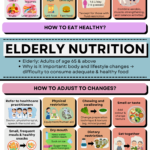接种疫苗是预防疾病最有效的方法之一。疫苗可帮助人体的免疫系统识别并抵抗病毒或细菌等抗原体,从而使我们免受其引起的疾病伤害。最重要的是尽可能让越多人接种疫苗,因为它不仅可以保护个人,更可以保护社会。
Vaccines are safe. They’re rigorously tested and go through many rounds of study, examination, and research before they’re used for the general public. The overwhelming bulk of research and evidence shows that vaccines are safe and that side effects are rare. Side effects that do occur are typically mild.
疫苗是安全的。它们经过了严格的测试、检查和多轮的研究,然后再用于大众。大量的研究和证据皆证明了疫苗是安全的,而且副作用很少。确实发生的副作用通常是轻微的。
Indeed, the greatest risk for most individuals will come if you choose not to get vaccination and potentially get sick after exposure to a disease. The illness may be far worse than the potential side effects of the vaccine. It could even be deadly.
的确,如果您选择不进行疫苗接种,对大多数人来说,最大的风险将会来临,您有可能在患病后生病。这种疾病可能比疫苗的潜在副作用严重得多,甚至可以导致死亡。
Vaccines are highly effective, but no vaccine is 100 percent effective. The effectiveness rate for vaccines differs from one type to the next. For example, flu vaccines are effective in lowering the risk of infection by 40 to 60 percent. That may sound low, but keep in mind the flu vaccine is designed to match the strain of the flu scientists expect to be most abundant in a coming flu season. If they’re wrong, the vaccines may be less effective. If they’re right, the rate of protection may be higher.
疫苗是非常有效,但是没有一种疫苗是100%有效的。疫苗的有效率因一种类型而异。例如,流感疫苗可有效降低40%至60%的感染风险。听起来有效率很低,但是切记,流感疫苗的研发与科学家们期望在即将到来的流感季节的流感毒株相匹配。如果科学家们错了,疫苗的效果可能会降低,反之,保护率可能会更高。
In conclusion, prevention is better than cure. It does cost some money to stay healthy, but it’s even more expensive to get sick.
总之,预防针胜于治疗。保持健康确实需要花费一些钱,但是生病的代价会更高。






